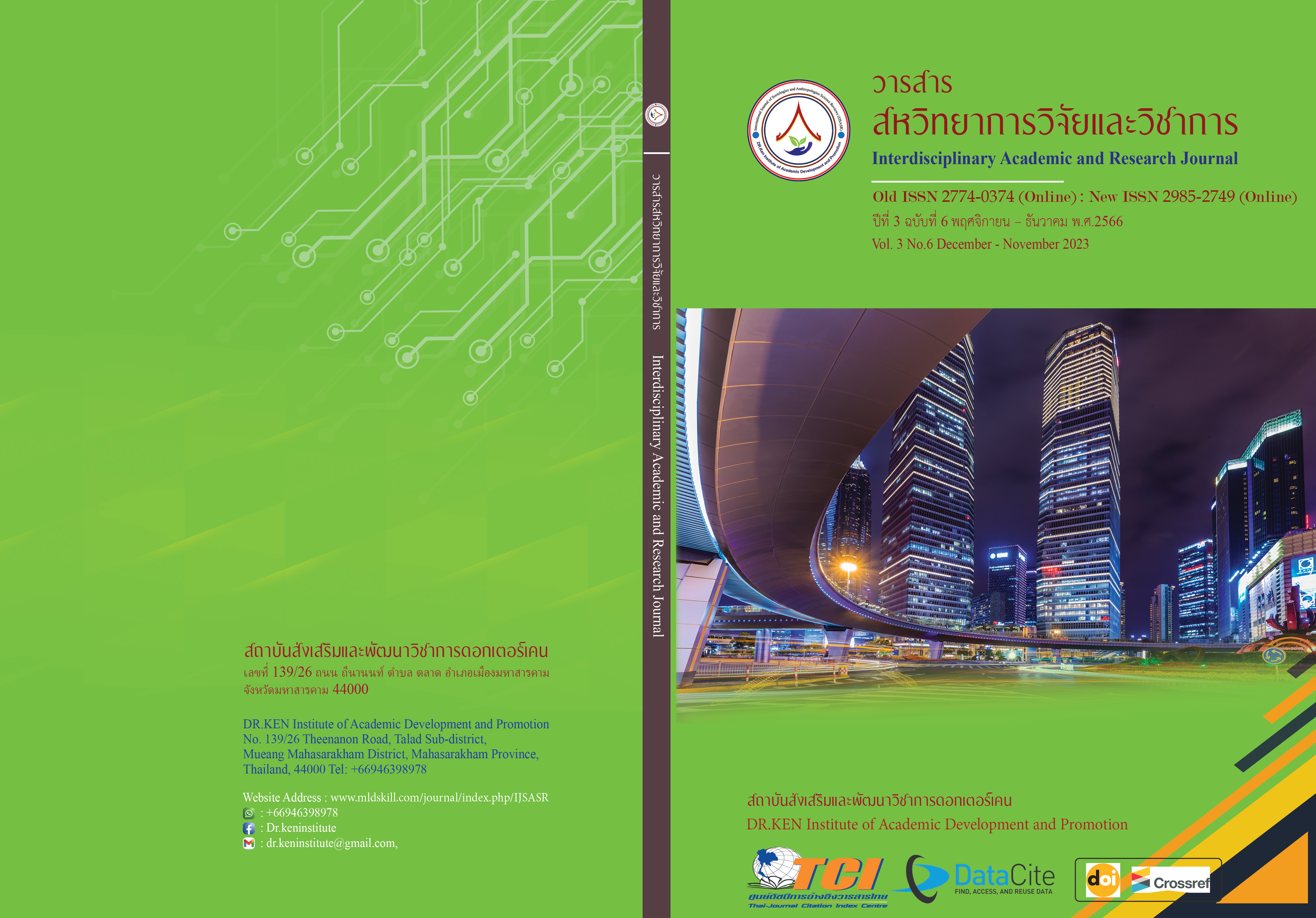Legal Problems Relating to Administrative Punishment for State Fiscal Disciplinary Offenses
DOI:
https://doi.org/10.60027/iarj.2023.270817Keywords:
Fiscal Discipline; , Budgetary and Fiscal Discipline; , State AuditAbstract
Background and Aime: Maintaining state fiscal discipline is linked to the State Audit, which examines the state's fiscal discipline. However, the imposition of administrative sanctions under the Organic Act on State Audit B.E. 2561 has led to some problems. Thus, the objective of this study is to study 1) the legal problems relating to administrative punishments for state fiscal disciplinary offenses. 2) In this study, Thai law on administrative punishments for state fiscal disciplinary offenses has been studied and 3) analyzed in comparison with French law to find solutions to the relevant issues.
Methodology: This research study was based on documents, studying concepts, and theories related to the process of considering budgetary and fiscal discipline violations, and provisions of related laws and regulations. Using content analysis and descriptive presentation.
Results: The finding found that; The study of the Organic Act on State Audit, B.E. 2561 (2018), and the State Audit Commission’s Regulations on the Adjudication of State Fiscal Disciplinary Offenses, B.E. 2562 (2019) show that there are some issues in the determination of the state fiscal disciplinary offenses, administrative punishments, including the exercise of discretion in the determination of administrative punishments in Thai legal measures. At present, such legal measures are unclear, inappropriate, difficult to implement, do not meet the objectives of the administrative punishments, and may unreasonably prejudice the rights and liberties of the person subject to punishment. However, in the budgetary and fiscal disciplinary laws in the French legal system, offenses, administrative punishments, and administrative fines are clearly defined and practical without unreasonable prejudice to the rights and liberties of the person subject to punishment, which is different from Thai law. Therefore, the Organic Act on State Audit, B.E. 2561 (2018), and the State Audit Commission’s Regulations on the Adjudication of State Fiscal Disciplinary Offenses, B.E. 2562 (2019) should be amended for more clear definitions and details of offenses, elements of offenses and punishments. Unnecessary or ineffective administrative punishments should be excluded. In addition, the rules and criteria for the exercise of discretion in the imposition of administrative fines should be established based on legal guidelines, and budgetary and fiscal disciplines in the French legal system, by taking into account the social context and economic condition of Thailand. This is to ensure and protect the rights and liberties of the person subject to punishment from unreasonable administrative punishments for state fiscal disciplinary offenses.
Conclusion: A study of the Constitutional Act on the State Audit B.E. 2018 and the regulations of the State Audit Commission on the consideration and diagnosis of violations of state financial and fiscal discipline B.E. 2019 found that there are problems in determining the base of the offense and administrative punishment that is unclear and inappropriate It is not consistent with the purpose of administrative punishment. It is recommended that the Act and regulations be amended to clearly define the bases of offenses and punishments and not unduly affect the rights and freedoms of those punished. This is in line with the guidelines of the Budget and Fiscal Discipline Law of the French Republic. and adapt to the social and economic conditions of Thailand to protect the rights and freedoms of those being punished from being damaged by excessive administrative punishment.
References
จิรกิตต์ คงสม. (2556). ปัญหาเกี่ยวกับวินัยทางงบประมาณและการคลังในระบบกฎหมายไทย. วิทยานิพนธ์นิติศาสตรมหาบัณฑิต คณะนิติศาสตร์ มหาวิทยาลัยธรรมศาสตร์.
ธานินท์ อินทยงค์. (2562). ปัญหามาตรการการบังคับใช้กฎหมายวินัยการเงินการคลังตามพระราชบัญญัติประกอบรัฐธรรมนูญว่าด้วยการตรวจเงินแผ่นดิน พ.ศ. 2561. การค้นคว้าอิสระ หลักสูตรนิติศาสตรมหาบัณฑิต คณะนิติศาสตร์ มหาวิทยาลัยรามคำแหง.
ปรีชา สุวรรณทัต. (2559). วิชาธรรมศาสตร์ว่าด้วยการคลังภาครัฐ. กรุงเทพฯ: มหาวิทยาลัยธรรมศาสตร์.
สำนักงานคณะกรรมการข้าราชการพลเรือน. (2551). คู่มือการดำเนินการทางวินัย. กรุงเทพฯ: สำนักบริหารกลาง สำนักงาน ก.พ. หน้า 1.
อุดม รัฐอมฤต. (2558). การปฏิรูประบบวินัย อุทธรณ์ และการร้องทุกข์ ของเจ้าหน้าที่รัฐ. รายงานการวิจัย.กรุงเทพฯ: สถาบันวิจัยและให้คำปรึกษาแห่งมหาวิทยาลัยธรรมศาสตร์.
Downloads
Published
How to Cite
Issue
Section
License
Copyright (c) 2023 Thongthada Wibulkit, Somjit Sersansie

This work is licensed under a Creative Commons Attribution-NonCommercial-NoDerivatives 4.0 International License.
Copyright on any article in the Interdisciplinary Academic and Research Journal is retained by the author(s) under the under the Creative Commons Attribution-NonCommercial-NoDerivatives 4.0 International License. Permission to use text, content, images, etc. of publication. Any user to read, download, copy, distribute, print, search, or link to the full texts of articles, crawl them for indexing, pass them as data to software, or use them for any other lawful purpose. But do not use it for commercial use or with the intent to benefit any business.
















.png)


